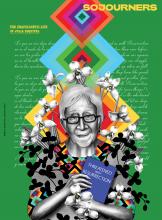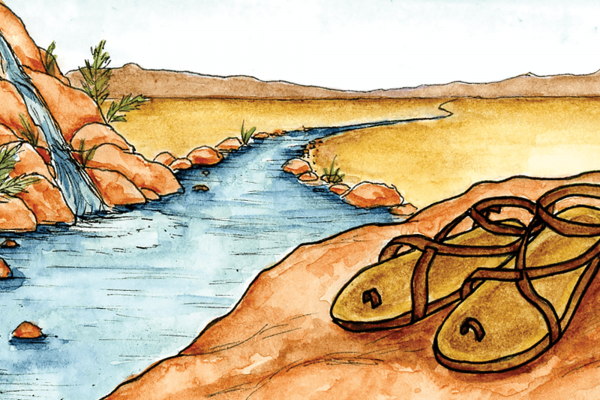ON THE CHURCH calendar, the entire month of March is devoted to Lent—a period of self-examination as we follow Jesus on his journey to Jerusalem to confront the powers who have usurped Yahweh’s temple for their own purposes. Examining our own motives and desires, our private resentments and need for control, is one of the hardest tasks we can ever do. But there is no better time than Lent to deal with our own egos as honestly as possible. Time and time again I hear of family members or friends who are estranged from each other over money matters or misunderstandings. It reminds me of C.S. Lewis’ story The Great Divorce, when various characters would rather take the bus back to hell than reconcile with a brother or sister.
Besides interpersonal relationships, there are societal sins in which we participate. What is our responsibility to the community in which we live? What policies would best help the homeless or relieve unnecessary cruelty in the criminal justice system? How much should we change our lifestyles because of impending climate change? How does love of money and power affect our relationship with Jesus who laid them aside to identify with “the least of these”? Our lectionary readings for this Lenten period of self-examination range across both testaments and different genres of literature. References to sin and law are prominent—but so are the antidotes: confession, repentance, forgiveness, and grace.
March 1
Repentance Is Hard
Genesis 2:15-17; 3:1-7; Psalm 32; Romans 5:12-19; Matthew 4:1-11
TEMPTATION, SIN, CONFESSION, repentance, and forgiveness—or resisting temptation from the start? For those who engage Lent as a time of self-examination, these readings provide two examples, one from each testament. Psalm 32, attributed to King David, most likely refers to his own sins of adultery and murder. But after David repented and experienced forgiveness, he was able to eloquently express both the misery of the conviction of sin, and the rush of relief and wild joy that accompanied confession and repentance. You would think people would try repenting more often.
In Matthew 4:1-11, we learn that even the most intense temptations were resisted by Jesus, the “Son of David.” In the wilderness, Jesus confronted the voices within. “Use your power for yourself!” the tempter urged. “Change these stones into bread—like Yahweh made manna in the desert!” “Show your power to those big shots in Jerusalem! Then come up the mountain, and I will show you all the kingdoms of the world. They can all be yours ... if you worship me.” Don’t think the human Son of David did not struggle hard against these thoughts. At that very moment, Roman soldiers were occupying his land. What aspiring king, president, or politician could have turned down such an offer?
Truly repenting of sin is hard. Resisting temptation is hard. When have you repented of a sinful act and found forgiveness? When have you found the support—of friends or angels—to resist temptation?
Read the Full Article

